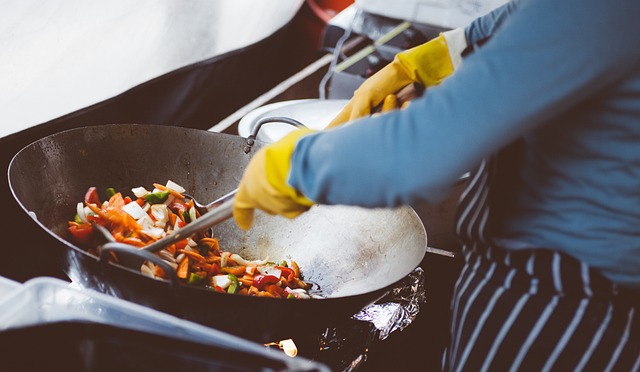Food Allergy Awareness Week is observed every year from May 7th to May 13th. This week-long event aims to raise awareness about food allergies and educate people about the dangers associated with them. If you are someone who prepares or handles food, knowing and understanding the signs of allergic reactions and the steps needed to avoid cross-contamination can be vital.
Read on to learn more about food allergies and how to handle them from a food preparer’s standpoint.
What Are Signs of Allergic Reactions?
Food allergies occur when your body’s immune system overreacts to a particular food protein. The symptoms of an allergic reaction can range from mild to severe, and they can appear within minutes to several hours after consuming the allergen.
The most common signs of allergic reactions include:
- Hives or rashes: These are itchy, red, raised bumps on the skin that can appear anywhere on the body.
- Swelling: Swelling of the lips, tongue, face, and throat can occur during an allergic reaction, and it can be life-threatening if it affects breathing.
- Nausea or vomiting: These symptoms can occur in mild to moderate allergic reactions and are often accompanied by stomach cramps or diarrhea.
- Difficulty breathing: wheezing, shortness of breath, and coughing are all symptoms of anaphylaxis, a severe allergic reaction.
- Drop in blood pressure: This can cause dizziness, lightheadedness, and fainting.
- Chest pain: Chest pain can occur during anaphylaxis, and it is often accompanied by a feeling of tightness or constriction in the chest.
If you notice any of these symptoms in someone who has eaten food that you have prepared, seek emergency medical attention immediately.
How to Avoid Cross Contamination
Cross-contamination is the transfer of allergens from one food to another. It can happen when you use the same utensils, cutting boards, or equipment to prepare different foods. Cross-contamination is a significant concern for people with food allergies or intolerances, as even a tiny amount of the allergen can trigger an allergic reaction.
Here are some tips to avoid cross-contamination:
- Wash your hands and surfaces: Wash your hands with soap and water before and after handling food. Clean all surfaces, cutting boards, and utensils with hot, soapy water before and after each use.
- Use separate equipment: Use separate equipment for preparing allergen-free food. If you must use the same equipment, clean it thoroughly before and after each use.
- Label and store food properly: Label all food containers and store allergen-free foods separately from foods that contain allergens.
- Educate your staff: Make sure your staff is aware of the risks of cross-contamination and that they know how to prevent it.
- Use allergen-free ingredients: When possible, use allergen-free ingredients to prepare food. If you must use ingredients that contain allergens, make sure they are stored and handled separately from other ingredients.
- Communicate with customers: If you run a restaurant or food service, make sure your customers are aware of the allergens present in your food. Include allergen information on your menu and have staff members available to answer questions.
Food Allergy Awareness Week is an excellent opportunity to educate yourself and others about the signs of allergic reactions and how to avoid cross-contamination.
If you’re looking for ServSafe certifications that will cover how best to avoid cross-contamination and what to do when allergic reactions take place, along with everything else you need to know, whether you’re a food handler or food manager, TSC Associates LLC has you covered. Contact us today to learn more about the certification process and get started!




